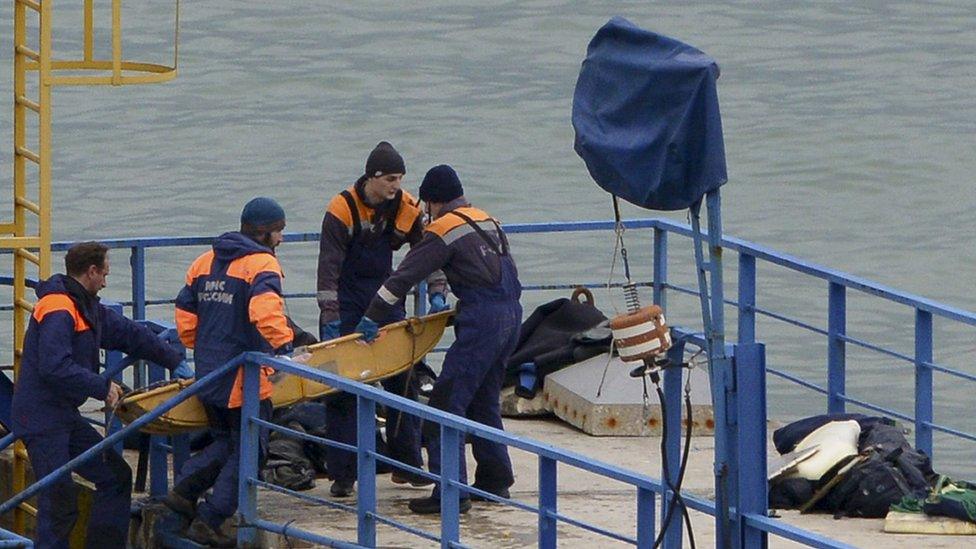Russia plane crash: Huge search for bodies in Black Sea
- Published
"Pain in my soul": The BBC's Steve Rosenberg reports as Russia mourns its victims
A huge search operation is continuing for a Russian military plane with 92 on board which crashed into the Black Sea.
Some 3,000 people, including nearly 200 divers, as well as ships, planes, helicopters and submersibles are involved in the operation near Sochi.
Some plane fragments have been found, including fuselage and tail parts.
The Tu-154 plane carrying soldiers, army musicians and reporters was heading for Syria. All on board are feared dead after Sunday's crash.
A national day of mourning was observed across Russia on Monday.
First body identified
At a briefing late on Monday, Defence Ministry spokesman Maj Gen Igor Konashenkov said that a fuselage fragment with windows had been found and brought to the shore.
He also said that a tail part with "engine fragments" had been discovered underwater.
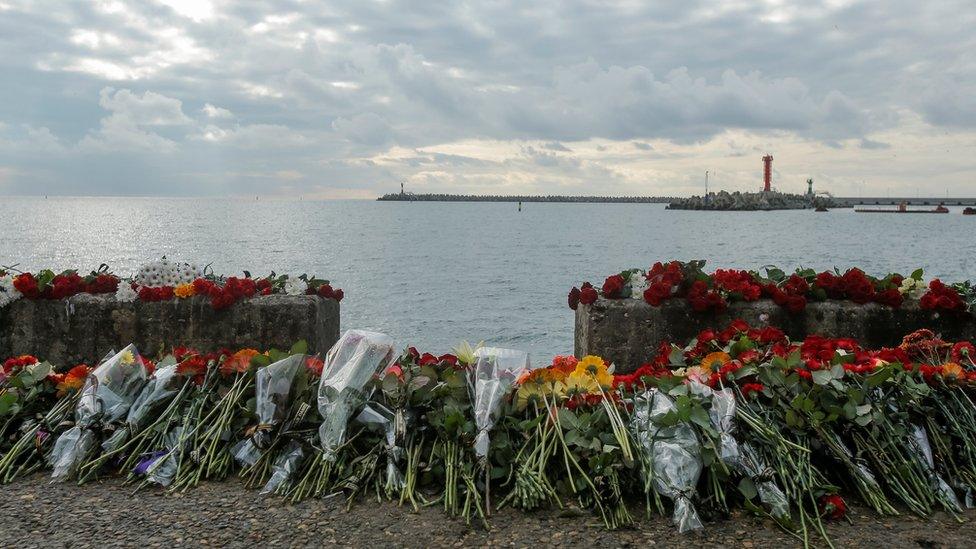
Flowers in memory of the victims were placed on the shore near where the plane went down
The spokesman added that another body was recovered on Monday.
Earlier, search teams had found 11 bodies, but officials believe many more may be trapped inside the remains of the aircraft.
Maj Gen Konashenkov also said that one of the retrieved bodies had been identified, without providing further details.
Search teams worked through the day , and the operation was continuing round the clock, the spokesman added.
The 10.5 sq km (four sq mile) search area just off the coast had been extended, he added.
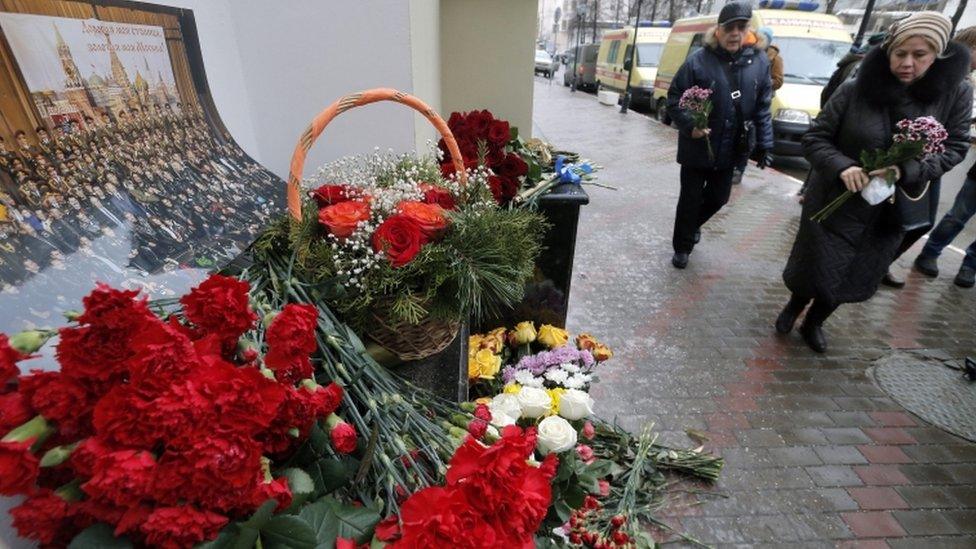
In Moscow, a makeshift memorial has appeared at the home of the Alexandrov Ensemble
Emergency Situations Minister Vladimir Puchkov said that the plane's "black box" flight recorders, situated in the tail of the aircraft, had not yet been retrieved.
Transport Minister Maksim Sokolov said that terrorism was not "among the main versions" of the possible causes of the crash.
He reiterated that investigators were looking into whether pilot error or a technical fault may have brought down the aircraft.
The plane disappeared from radar two minutes after taking off from Sochi's Adler airport at 05:25 (02:25 GMT) on Sunday, heading for Latakia in Syria, the defence ministry said.
The flight had originated in Moscow and landed in Sochi for refuelling.
It was carrying 64 members of the famed Alexandrov military music ensemble, who were to perform for Russian troops in Syria.

What is the Alexandrov Ensemble?
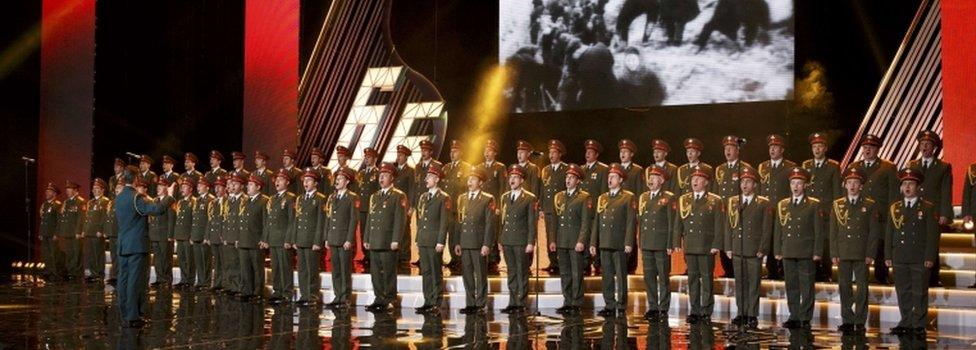
Alexandrov Ensemble is the official choir of the Russian armed forces
It was founded in 1928 during the Soviet era
The group also includes an orchestra and dancers
It takes its name from its first director, Alexander Vasilyevich Alexandrov, who wrote the music to the national anthem of the Soviet Union
Holds the right to use the term Red Army Choir, although the interior ministry's MVD Ensemble also uses it

An audio recording played on Russian media and said to be of the final conversation between air traffic controllers and the plane reveals no sign of any difficulties.
Voices remain calm until the plane disappears and the controllers try in vain to re-establish contact.
The plane came into service in 1983.
Gen Konashenkov said the aircraft was last serviced in September and had undergone more substantial repairs in December 2014. It had an "experienced" pilot, he said.
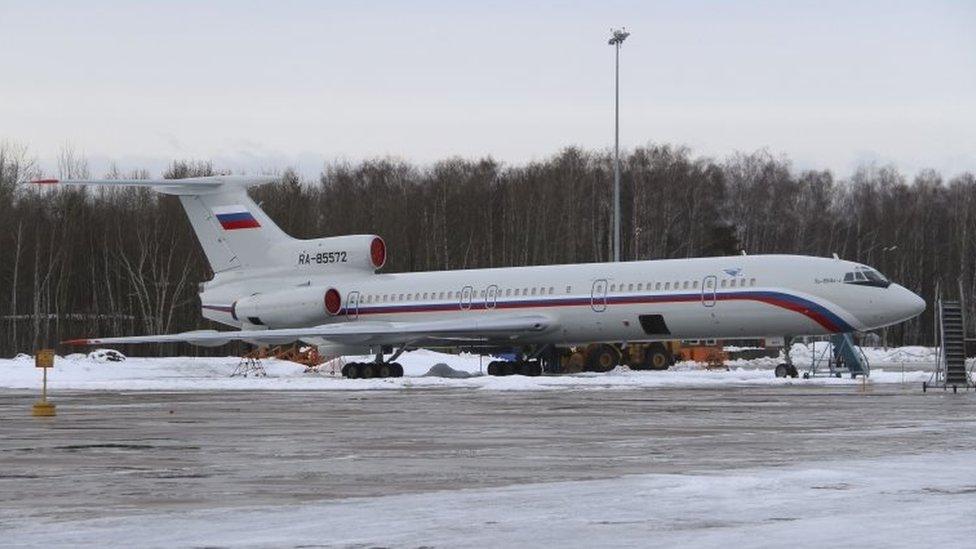
The Tu-154 that crashed into the Black Sea is seen at a military airport near Moscow in 2015

Candles have been lit in central Sochi in memory of the crash victims
The defence ministry has published a passenger list (in Russian), external.
As well as the Alexandrov Ensemble, those on board included nine journalists, eight soldiers, two civil servants and eight crew members.
Among the victims was Yelizaveta Glinka, known as Dr Liza, the executive director of the Fair Aid charity and the inaugural winner of Russia's state prize for achievements in human rights.
The Alexandrov Ensemble was scheduled to perform a New Year's concert at Russia's Hmeimim air base near Latakia.
Russia has been carrying out air strikes in support of Syrian government forces who are battling rebels opposed to Syrian President Bashar al-Assad.


Tupolev-154: Russian workhorse
The backbone of Soviet and Russian airlines for decades
Three engines, narrow-bodied and medium range
Designed in the mid-60s, came into service in 1972 and was modernised in 1986 with new engines and equipment
Has seen 39 fatal accidents, although few were due to technical problems. Many were as a result of difficult weather conditions and poor air traffic control. A few were lost in conflicts including in Lebanon, Georgia and Afghanistan
Not used in Russia's civil aviation since 2009, but is still used by the military. Only about 50 in service worldwide

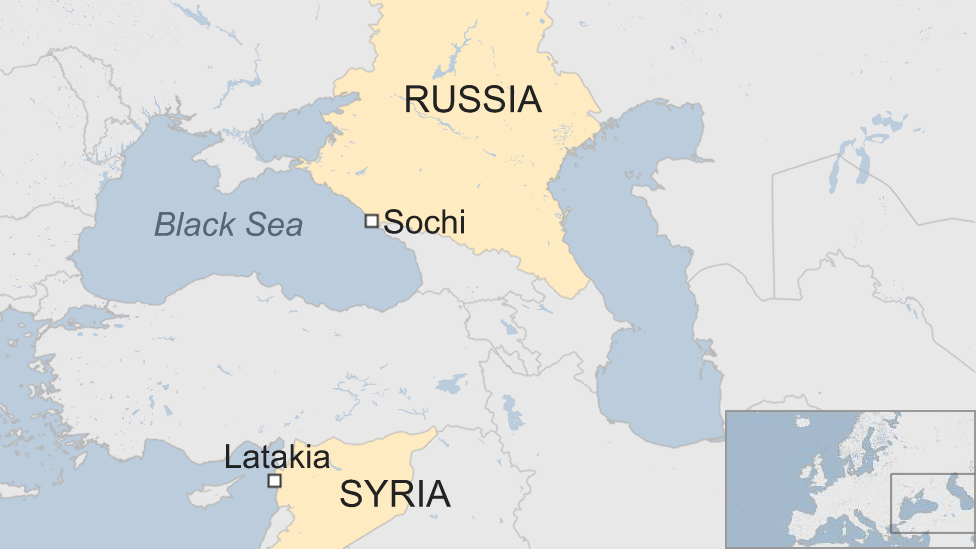
- Published25 December 2016
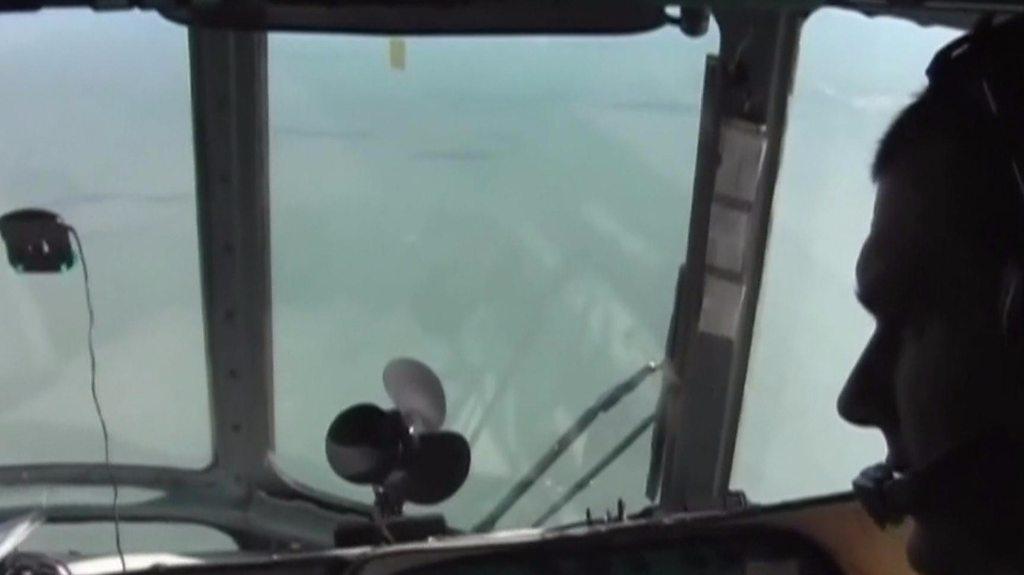
- Published25 December 2016
